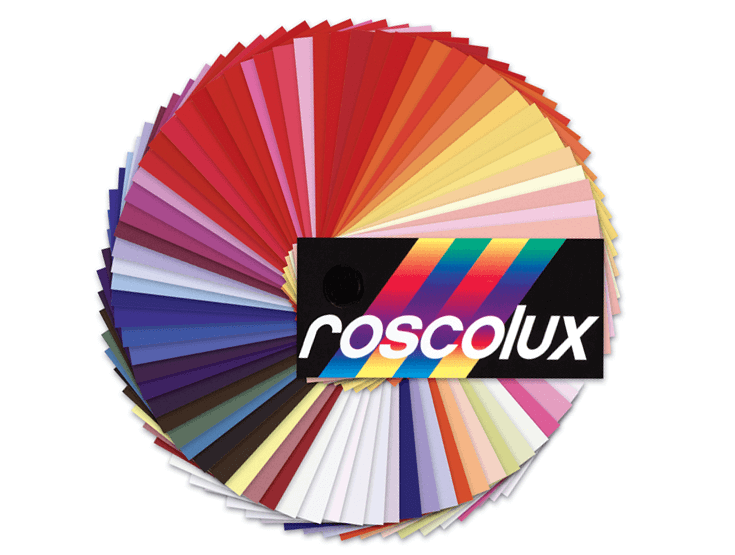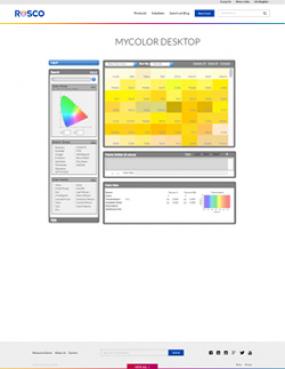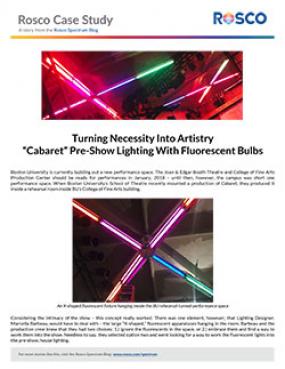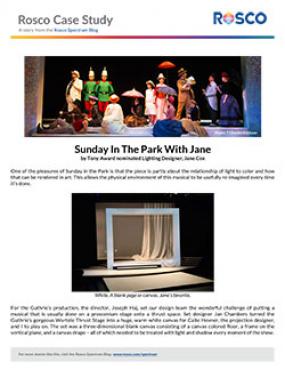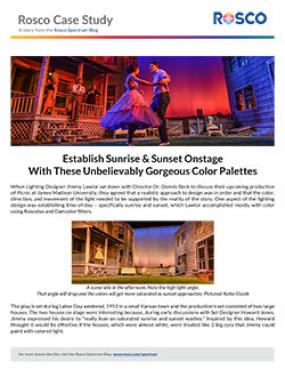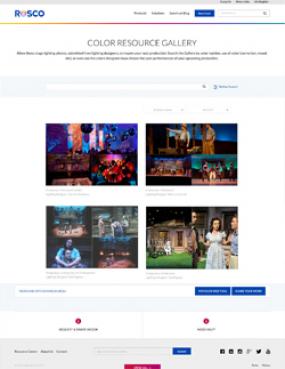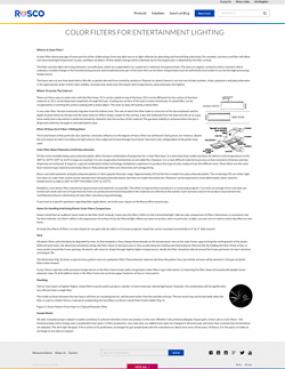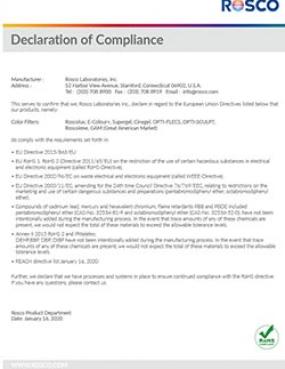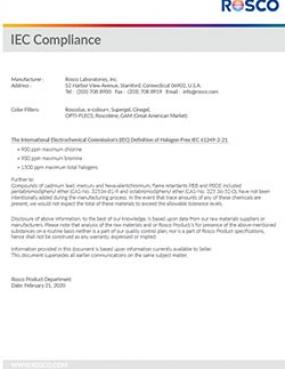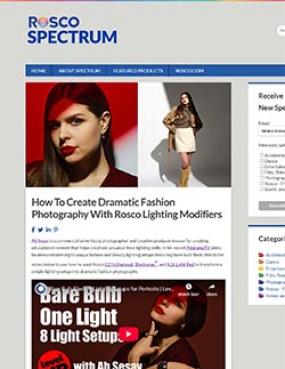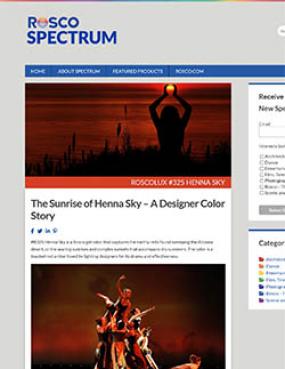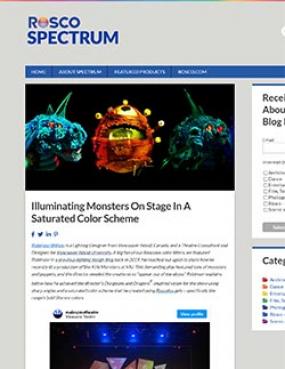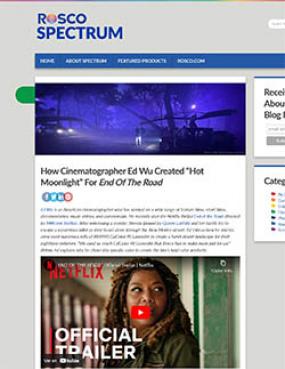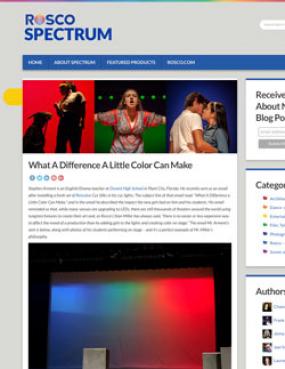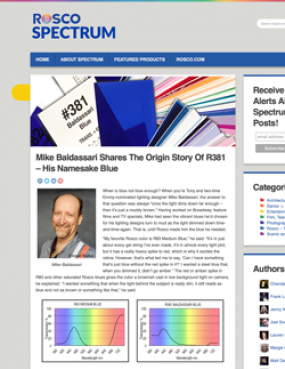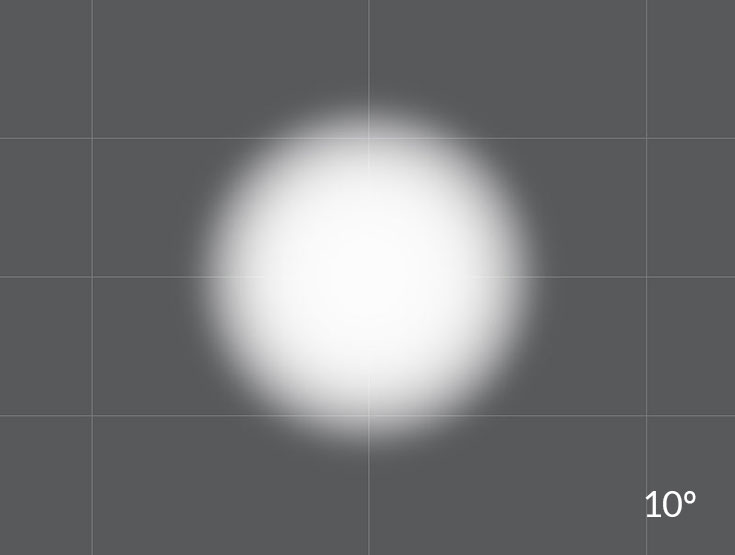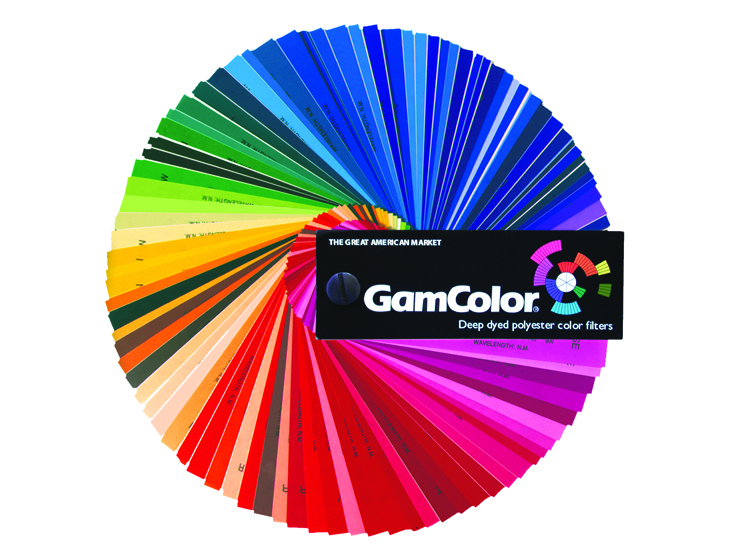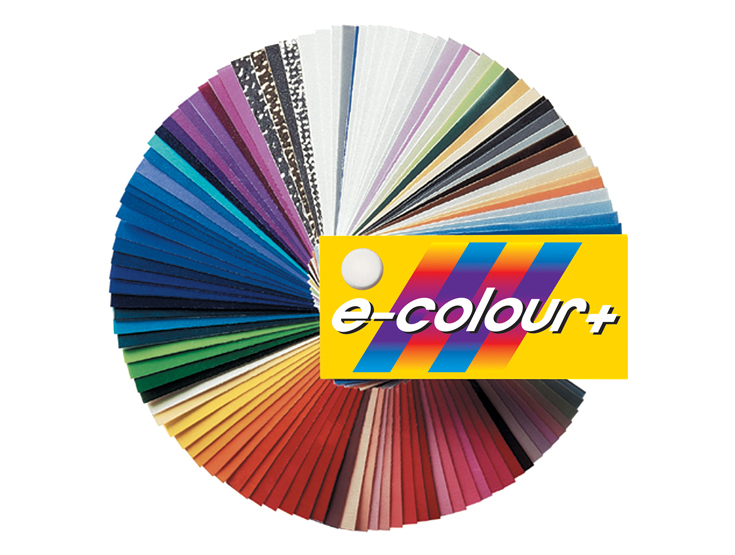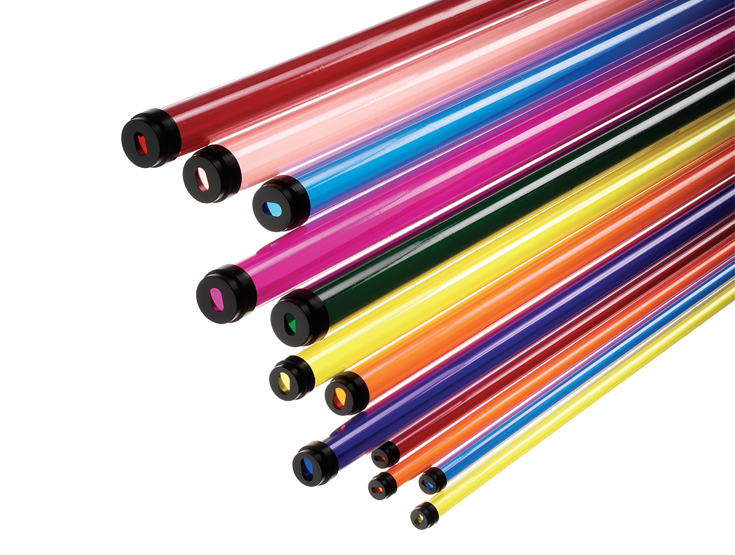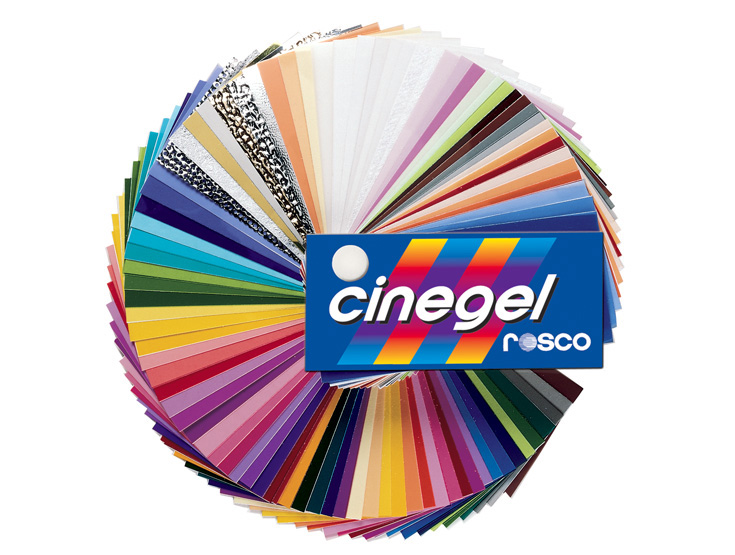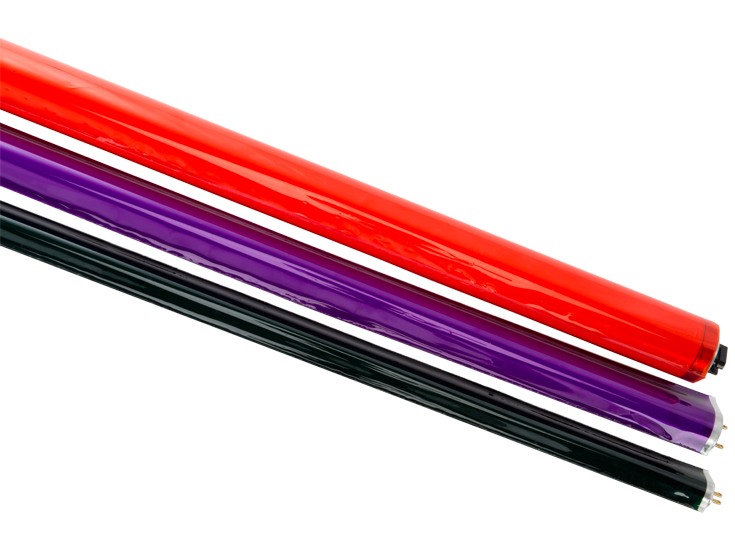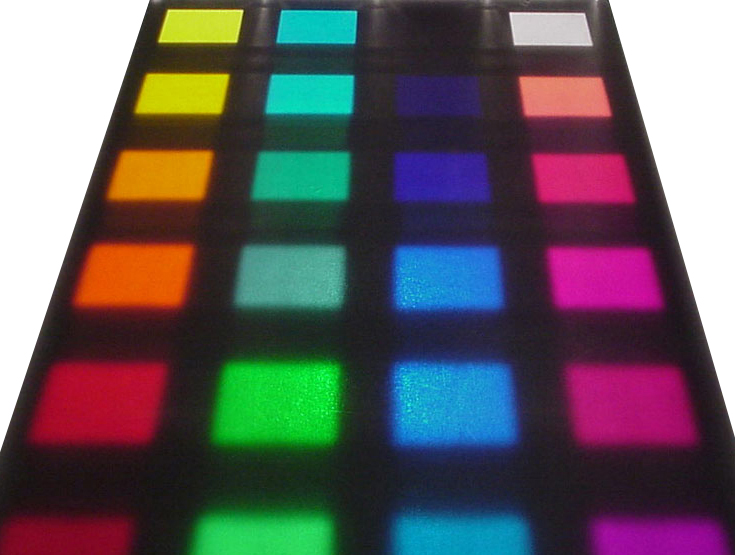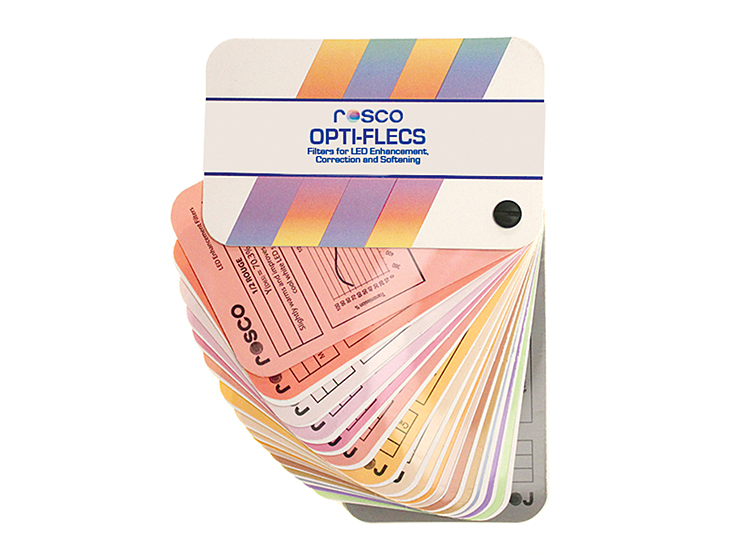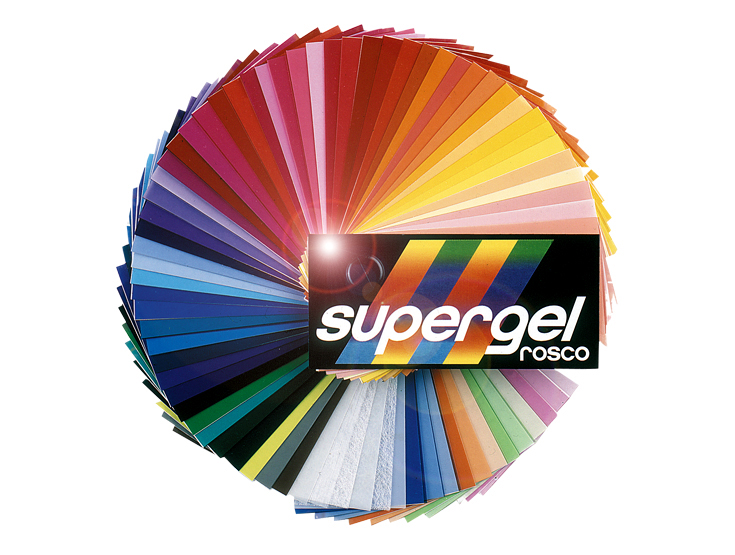Products on this page may not be available in your region.
Roscolux is widely recognized as the most versatile range of color, correction and diffusion filters for entertainment lighting. Originally introduced in the United States, it is now available all around the globe. Roscolux is manufactured using two different substrates, polyester and polycarbonate – both of which provide superior consistency and durability when installed in front of hot theatrical and film/TV fixtures.
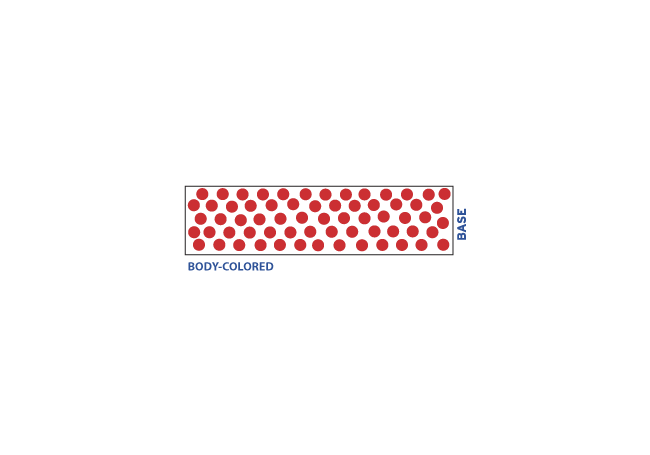
Body-Colored Polycarbonate
Almost half of the Roscolux line features Rosco’s distinctive body-colored extrusion process. Manufacturing these filters begins by combining powdered resin and dyes to create a concentrated color “pellet.” This concentrated colorant and additional clear resin are then fed into an extruder where they are blended together under intense pressure and heat. The mixture is then pushed through a die, which forms it into body-colored, 24” (60cm) wide film.
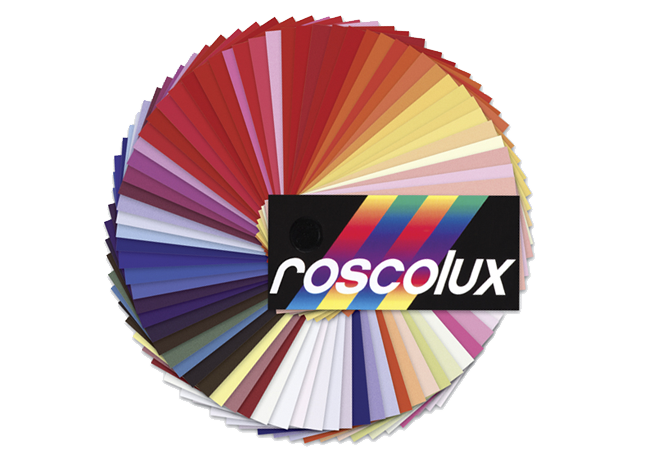
Color Stability
In any color filter, the colorants or dyes eventually migrate away from the hottest area, which causes fading and discoloration. The rate at which the filter fades is a function of the dye employed and the depth of penetration by the dye into the base material. When simply coated on the surface, the pigments can easily sublimate from the base into the air. Because all of the colorants used to manufacture Roscolux filters are trapped inside the plastic, more extreme conditions are required to cause the dye particles to sublimate out of the film, making them more resistant to fading and color shifts.
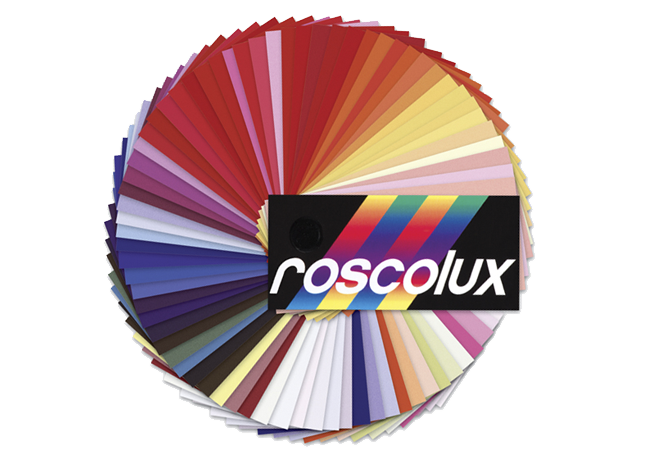
Heat Resistance
Rosco’s high-temperature (HT) range of Roscolux color filters feature extremely high softening and melting points – making them an excellent choice for use on hot theatrical or film/TV lights.
The polycarbonate Roscolux filters (aka Supergel) also feature unsurpassed dimensional stability in extreme heat. Most polyester films are stretched into their final shape, which leaves tension memory that can cause the film to distort when heated. Because our polycarbonate filters are extruded into their final shape, they will remain in a relaxed state in hot conditions without puckering. This is advantageous when using color-scrollers, where puckering or distortion could cause the scroll to bind.
Polyester Roscolux Filters:
Base: Polyester (PET)
Gauge: 1.4-2.5 mil (35-64 um) nominal
Max Width: 48 in (1.2m)
Compliance: RoHS, REACH, Proposition 65
Temp: Softening: 257°F (125° C)
Melting: 572°F (300° C)
Body-Colored Polycarbonate Roscolux Filters:
Base: Polycarbonate (with fire retardant additive)
Gauge:3-4 mil (75-100um) nominal
Max Width: 24in (60cm)
Compliance: RoHS, REACH
Temp: Softening: 320°F (160° C)
Melting: 425°F (220° C)
Inherent Flame Retardance
An additional advantage of manufacturing Rosco’s polycarbonate filters from the raw resin is our ability to modify the chemistry of the plastic.Recognizing the global importance of fire prevention, Rosco includes a fire retardant additive in our resin formulation to create the only inherently flame retardant color filters in the world.
Product Numbers
|
100 0XXXX 2024 |
Roscolux 20"x24" Sheets (50cm x 60cm) |
|
100 0XXXX 2425 |
Roscolux 24" X 25' Rolls (60cm x 7.62m) |
|
100 0XXXX 4825 |
Roscolux 48" X 25' Rolls (1.2m x 7.62m) |
XXXX = Color Number
myColor
Color Resource Gallery
Color Filters for Entertainment Lighting
Case Study: How To Create Dramatic Fashion Photography With Rosco Lighting Modifiers
Case Study: The Dance Origins Of Skelton Exotic Sangria: A Designer Color Story
Case Study: The Sunrise of Henna Sky – A Designer Color Story
Case Study: Illuminating Monsters On Stage In A Saturated Color Scheme
Case Study: How Cinematographer Ed Wu Created “Hot Moonlight” For End Of The Road
Case Study: What A Difference A Little Color Can Make
Case Study: Mike Baldassari Shares The Origin Story Of R381 – His Namesake Blue
Contact Request
Please complete this form
Need Help?
Your request is important to us.
We will respond as soon as possible during regular business hours.
Need help right away? Check out our frequently asked questions page here: FAQs

